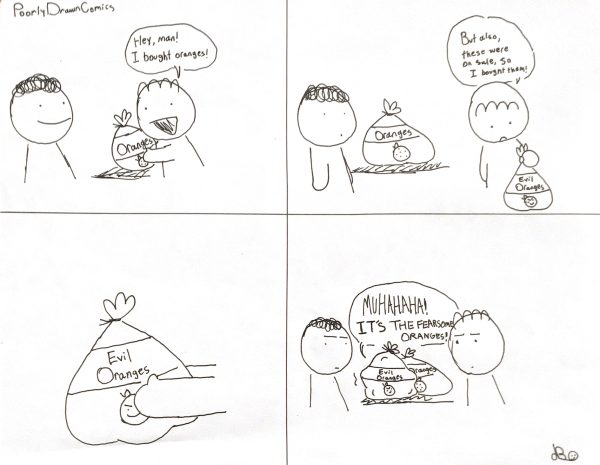PSA To all parents! What is strict parenting REALLY doing?
This is a question that must be examined by families everywhere.
Jan 30, 2020
When a couple decides to raise a child, they take on a colossal responsibility. With their best interest at heart, parents can invade their child’s life.
Children often wonder: What is going through my parents’ minds when they tell me no? I see no reason I can’t do this, so why are they telling me no? When an adult restricts their child from doing harmless things other children are doing, what they think they’re doing is creating a well rounded, disciplined, trusting child.
In reality, they are creating a child who is rebellious, secretive, and an expert liar. Face it, if you tell a child not to do something, they are going to find a way to do it and learn the consequences the hard way.
A way to establish trust with your child is to give them space. Let them go to that party. Let them download instagram. As long as their safety isn’t in danger, let them do it. Warn them of the consequences and give them the freedom to make their own decisions.
Restricting TV channels:
TV is something most children are interested in. Disney and Nickelodeon are two of the most popular kid/teen television channels. While some of their teen-based shows have subtle inappropriate humor, most of the jokes go straight over a young child’s head.
Some parents feel the need to restrict the channels that their children watch on television. This is okay for certain shows, but not for others. Certain parents believe that watching shows where children are the stars and not the parents can brainwash their children into thinking the kids can run the house. As long as you teach your child to respect the people who have more life experience than them, this should not be an issue.
Most TVs come with a built-in Parental Control feature. This allows parents to lock certain channels, making them unwatchable without a password. This can be detrimental to a child’s social skills. When a child goes off to school to make friends, they are going to try to find any similarities between them and their friends.
What is something most families have in common? A television. Children are going to want to discuss what happened in the latest episode of their favorite TV show with their friends. If you lock the channels that are popular with kids their age, your child won’t be able to relate themselves to their peers and can eventually become introverted.
Setting restrictions is okay, just do not completely block children’s TV from a kid’s childhood.
Social media:
One of the biggest debates between parents is “Should I allow my child to have social media?” The answer is yes!
We’ve all heard the horror stories about things that can happen when a teenager joins a social media platform. This often scares parents away from letting their child create an account. Social media doesn’t have to be scary!
Take Instagram for example. You can switch your settings to make your account private. Only people you allow can see what you post. People have to request to follow you if your account is private, and you can dictate who can direct message you. Most social media platforms have this option.
Why should my child have social media?
Like it or not, times are changing and social media is becoming a main form of communication. It can be an amazing way for your child to connect with their friends and follow what their favorite celebrities are doing.
Yes, accidents can happen and it is possible that your child can end up trusting the wrong person on the internet. Believe it or not, this CAN be avoided! This all comes with trust between you and your child. If your child feels they can trust you, they will be more likely to tell you about the things they are doing on their phone. Establish boundaries for their internet browsing, and never let your child meet up with an internet friend alone.
Phone Security
In the age of technology, it is more important than ever that your teen has a phone. They are going to want to go out places with friends and talk over FaceTime. While you as a parent have a right to know what your child is doing, DO NOT GO THROUGH THEIR PHONE! This is an invasion of privacy.
Your child has the respect to not go into your phone, so you should give it right back to them. If you feel there is something questionable that your child is doing on their phone, ask them directly about it. Ask them to see exactly what you are looking for and take appropriate action from there.
How To Respectfully Search Your Child’s Phone
- ASK THEM! Go to your child and ask them if they are doing what you suspect.
- Ask if you can see their phone to confirm their answer to your previous question.
- Let your child hold and navigate the phone. This will make them feel more secure and in control of their phone.
- Look only at what is relevant to the situation. While inspecting your child’s phone do not try to snoop in their texts or personal notes. This is an extreme invasion of privacy and can result in the outing of your child’s sexuality, the revealing of a personal topic, or worse. This can be traumatizing for a developing child.
- Stay calm! If they confess, or you find evidence on their phone, have a talk about why what they are doing is wrong in a calm respectful manner. Give them a chance to talk and listen to what they say. If disciplinary action is required, do it calmly and do not yell.
Life 360
While knowing your child’s location is important, give them freedom. Only request their location if you think there is a problem. Life 360 or other family location apps are helpful until you rely on them to build trust with your child. When you let your child out of the house, you are trusting them and the rest of the world to keep them where they say they are going and to bring them back safe.
If you choose to implement these apps into your family, do not abuse them. Do not set crazy rules about when locations need to be on. Use them wisely and you will establish trust between you and your child.
REMEMBER!
Children are people too and whether you think so or not, their feelings and opinions matter and are valid. Don’t just write off their issues as them seeking attention.





